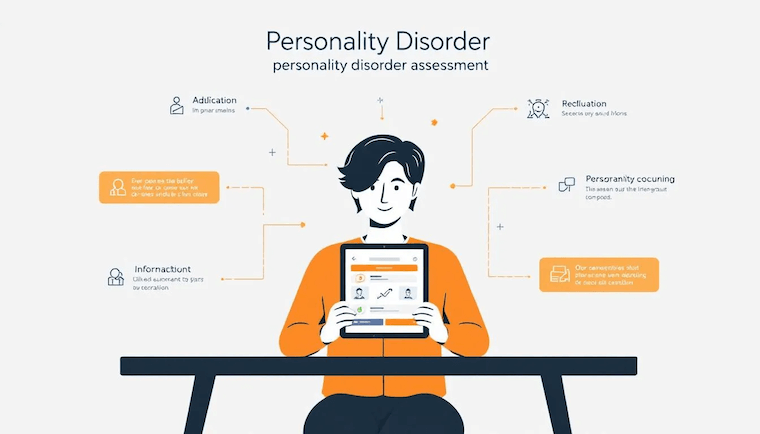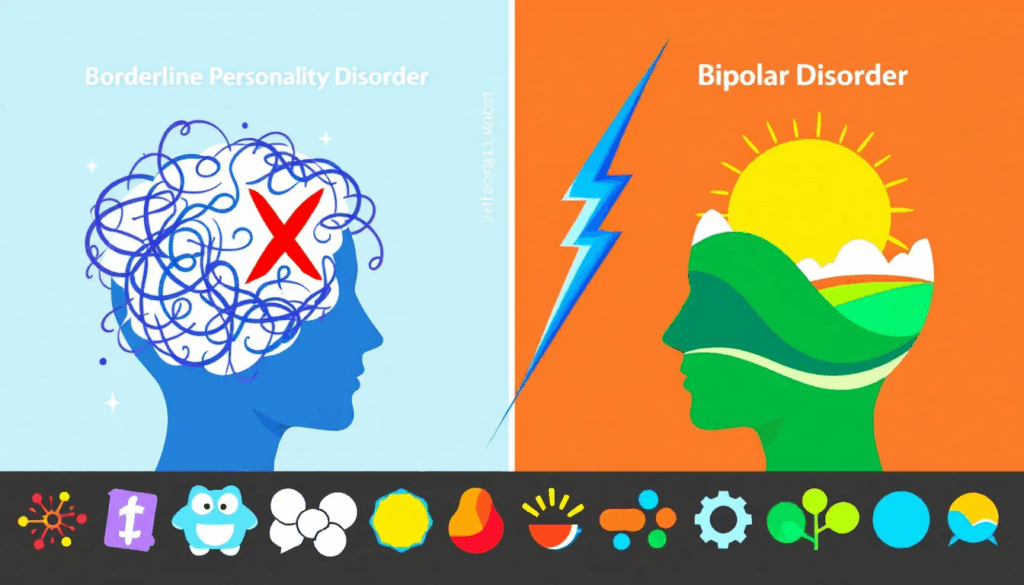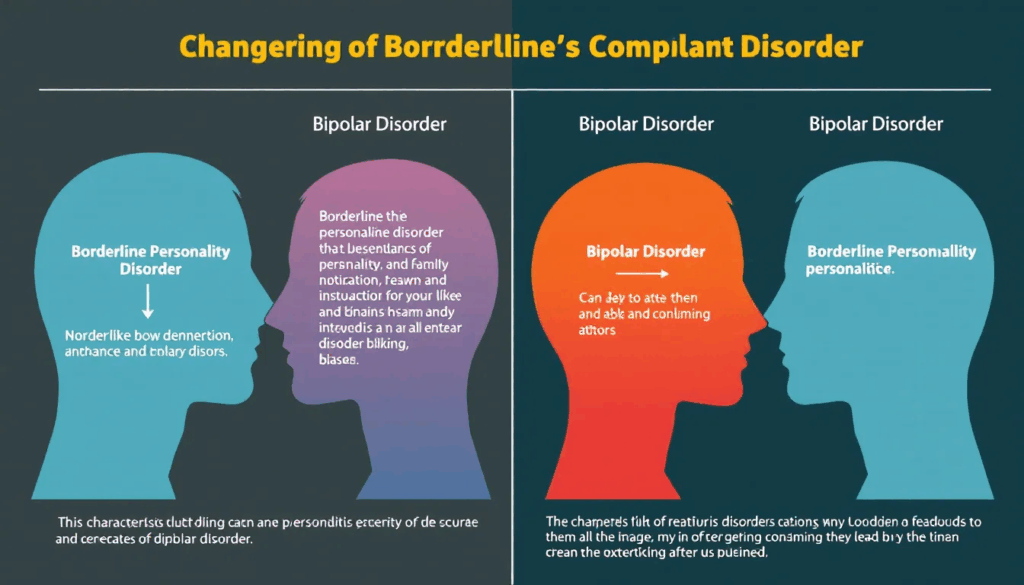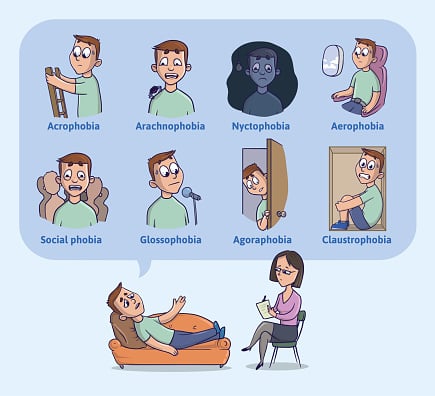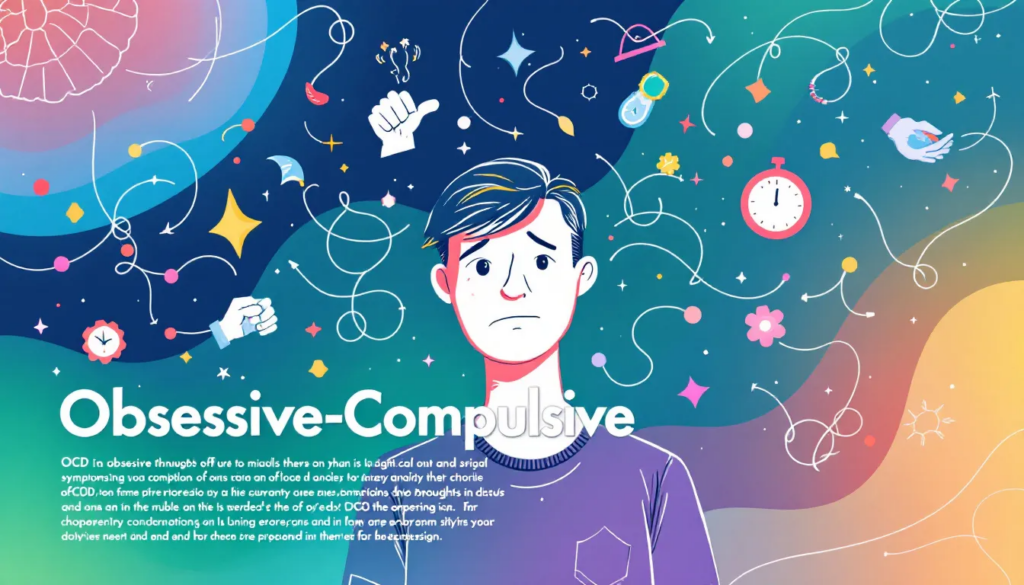What are Anxiety Disorders?
Anxiety disorders are mental health conditions characterized by excessive fear, worry, and anxiety that persist beyond appropriate circumstances. These disorders can significantly impact an individual’s daily life, causing difficulties in social interactions, work performance, and overall well-being. It is important to note that occasional anxiety is a normal part of life, but when anxiety becomes constant, excessive, and interferes with daily functioning, it may be classified as an anxiety disorder.
Types of Anxiety Disorders
According to the Diagnostic and Statistical Manual of Mental Disorders (DSM-5), there are several types of anxiety disorders, including generalized anxiety disorder (GAD), panic disorder, social anxiety disorder (previously called social phobia), phobias, agoraphobia, and separation anxiety disorder. There are other anxiety disorders as well, including obsessive-compulsive disorder, post-traumatic stress disorder, and more. While each type of anxiety disorder has its unique features and mental symptoms, they all share the common thread of persistent fear and anxiety.
Generalized Anxiety Disorder (GAD)
Generalized anxiety disorder is characterized by persistent and excessive worry about various aspects of life, such as work, health, finances, and relationships. People with GAD often experience physical symptoms like muscle tension, fatigue, restlessness, and difficulty concentrating. These symptoms can significantly interfere with daily life, cause distress, and can turn into a panic disorder.
Panic Disorder
Panic disorder involves recurrent and unexpected panic attacks, which are sudden episodes of intense fear accompanied by physical symptoms such as rapid heartbeat, sweating, trembling, and chest pain. These panic attacks can be so severe that people with anxiety disorders may fear losing control or even dying. Panic disorders can also lead to agoraphobia, where individuals avoid situations or places that may trigger panic attacks. An individual struggling with panic disorder or unable to control the symptoms of a panic attack can benefit from professional treatment, which may include anti-anxiety medications to relieve symptoms.
Social Anxiety Disorder
Social anxiety disorder, also known as social phobia, is marked by intense fear and self-consciousness in social situations. Individuals with social anxiety disorder may fear being judged, criticized, or humiliated by others, leading to avoidance of social interactions. Social anxiety disorder can significantly impact relationships, work performance, and overall quality of life.
Extreme Fear Related to a Specific Phobia
Specific phobias involve an intense, irrational fear of a particular object or situation, such as heights, animals, or flying. The fear is often disproportionate to the actual danger posed by the object or situation. Individuals with specific phobias may go to great lengths to avoid the feared stimulus, which can limit their daily activities and cause significant distress.
Agoraphobia
Agoraphobia is a type of anxiety disorder characterized by the fear of being in situations where escape may be difficult or help might not be available in the event of a panic attack. This can lead to avoidance of crowded places, public transportation, or being outside alone. Agoraphobia can greatly restrict an individual’s ability to engage in daily activities and maintain social connections.
Separation Anxiety Disorder
Separation anxiety disorder involves excessive fear or anxiety about being separated from attachment figures, such as parents or loved ones. While separation anxiety is a normal stage of development in young children, it becomes a disorder when the fear is excessive, prolonged, and interferes with daily functioning. Separation anxiety disorder can occur in both children and adults.
Selective Mutism
Selective mutism is a type of anxiety disorder that typically affects children. Selective mutism is characterized by the inability to speak in certain social situations, such as at school or in public, despite having normal language skills and speaking comfortably in other settings. Selective mutism can significantly impact a child’s social and academic development if left untreated and can make anxiety symptoms worse.

Anxiety Disorder Symptoms
Anxiety disorder symptoms can vary depending on the specific type of disorder. However, some common symptoms that people with anxiety disorders may experience include:
- Excessive worry and fear
- Restlessness and irritability
- Muscle tension and fatigue
- Difficulty concentrating and sleep disturbances
- Panic attacks (sudden episodes of intense fear)
- Avoidance of situations that trigger anxiety
- Physical symptoms such as rapid heartbeat, sweating, and trembling
It is important to note that anxiety disorders can also co-occur with mental illnesses such as depression. If you or someone you know is experiencing symptoms of an anxiety disorder, or another mental helath disorder it is crucial to seek professional help from a mental health provider.
Risk Factors for Anxiety Disorders
While the exact causes of anxiety disorders are not fully understood, research suggests that a combination of genetic and environmental factors may play a role. Some potential risk factors for developing an anxiety disorder include:
- Family history of anxiety disorders or other mental health conditions
- Stressful or traumatic life events
- Chronic medical conditions
- Substance abuse
- Personality traits such as shyness or perfectionism
It is important to remember that having one or more risk factors does not necessarily mean that an individual will develop an anxiety disorder. However, being aware of these factors can help individuals take steps to manage stress and seek support when needed.
Diagnosis and Treatment of Anxiety Disorders
If you suspect that you or someone you know may have an anxiety disorder, the first step is to consult with a mental health professional. They will conduct a thorough evaluation, which may include a physical exam, psychological questionnaires, and a discussion of symptoms and medical history. This evaluation will help determine which anxiety disorders you may be struggling with and guide treatment decisions.
Psychotherapy for Excessive Anxiety
Treatment for anxiety disorders typically involves a combination of psychotherapy and medication. Cognitive-behavioral therapy (CBT) is a common and effective form of talk therapy that helps individuals identify and change negative thought patterns and behaviors that contribute to mental disorders, including anxiety.Exposure therapy, a type of CBT, focuses on gradually exposing individuals to feared situations or objects to help them overcome their anxiety. While it’s not necessarily the goal to cure anxiety disorders, individuals can learn how to cope with the symptoms so they do not have to live their lives in a state of constant worry.
Medication to Treat Anxiety Disorders
Medications such as anti-anxiety medications, antidepressants, and beta-blockers may also be prescribed to help manage symptoms of anxiety disorders.It is important to work closely with a mental health professional to determine the most appropriate treatment plan based on individual needs and preferences.
Coping Strategies and Self-Help for Anxiety Disorders
In addition to
professional treatment, there are several coping strategies and self-help techniques that can help individuals manage symptoms of anxiety disorders:
- Practice relaxation techniques such as deep breathing, progressive muscle relaxation, and mindfulness meditation
- Engage in regular physical exercise, which can help reduce stress and improve mood
- Maintain a healthy sleep schedule and practice good sleep hygiene
- Limit caffeine and alcohol consumption, as these can worsen anxiety symptoms
- Connect with others and build a support network of friends, family, or a support group
- Challenge negative thoughts and practice positive self-talk
- Set realistic goals and break tasks into smaller, manageable steps
Remember, coping with an anxiety disorder or any mental health disorder is a process, and it may take time to find the strategies that work best for you. Be patient with yourself, and don’t hesitate to reach out for help when needed, whether from a professional or support group.

Living with an Anxiety Disorder
Living with an anxiety disorder can be challenging, but with proper treatment and support, it is possible to manage symptoms and lead a fulfilling life. It is important to remember that recovery is possible and that you are not alone in your struggle with anxiety disorders.In addition to seeking professional help, there are several things you can do to support your mental health and well-being.
Ways to Personally Address Symptoms of Anxiety Disorders:
- Educate yourself about your anxiety disorder and available treatment options
- Develop a self-care routine that includes activities you enjoy and find relaxing
- Set boundaries and learn to say no when necessary to avoid over-committing yourself
- Celebrate your successes and progress, no matter how small they may seem
- Be kind to yourself and practice self-compassion
Remember, recovery is a journey, and there may be setbacks along the way. However, with persistence, support, and the right treatment approach, it is possible to manage anxiety disorders and live a fulfilling life.
Reach Out For Help
Anxiety disorders are common mental health conditions that can significantly impact an individual’s daily life and well-being. By understanding the different types of anxiety disorders, their symptoms, and available treatment options, individuals can take steps to manage their anxiety and improve their quality of life. At
Cedar Hill Behavioral Health, we understand that mental health issues can feel overwhelming, but you don’t have to face them alone.If you or someone you know is struggling with symptoms of untreated anxiety disorders, don’t hesitate to
reach out for help via our secure online contact form or call us at
(508) 310-4580. With the right support and treatment, it is possible to overcome anxiety and lead a fulfilling life.





